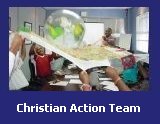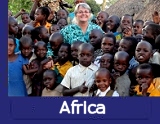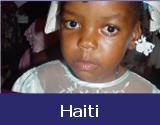home >> caribbean
>> guyana>>

GUYANA
- DISCUSSION PAPER ON THE DEVELOPMENT OF A MASTER PLAN -
ST. STANISLAUS COLLEGE -
2002 - 2007
Prepared by Kenneth Khan (kenkhan@cariaccess.com),
Barbados Chapter
I. INTRODUCTION
The Barbados Chapter and the Saint Stanislaus College Old Students= Association
(SSCOSA) have been asked by the Toronto Chapter to work together to put
in place an overall plan for the improvement of St. Stanislaus College.
It is felt by many alumni that some Master Plan is urgently needed if
Saints is to move ahead in the 21st Century. This Master Plan should include
both short-term and long-term objectives. The following is a beginning
to what is hoped will be an ongoing series of consultations involving
Past and Present Students, Parents and Teachers of Saints, the present
College Administration, the Ministry of Education and all stakeholders
interested in the welfare of Saints. We all need to work together so as
to set up goals and long range plans for the success of the College. The
plans for a Computer room, a Transformer, a Wall of Fame and other ongoing
improvements in the facilities and curriculum/extra curriculum, should
not be seen as knee-jerk responses to crises, but as part of a well thought-out
master plan. We need to be proactive, and be able to anticipate to some
extent the problems that rapid change brings about.
The SSCOSA is sponsoring a 2-day strategic planning
(and ‘strategic thinking’) Workshop, that has had to be postponed
but will now be held at a later date sometime in 2002, that will be organised
around the following areas: Human Resources, Budgeting & Financial
Management, Curriculum, Physical Plant and Management & Administration.
Workshop participants will include the staff and administration of the
College, student representatives, parents, alumni, the Planning Division
of the Ministry of Education, the Department of Education, the Teaching
Service Commission and specialist officers from the National Council for
Education Resource Development (NCERD). The general idea is for appropriate
working groups to address various issues with guidance from competent
Resource Persons/Facilitators.
The following are a few ideas and suggestions that might assist in the
formulation of some policy statement that will take Saints into the 21st
Century. Your comments will be appreciated by the SSCOSA which is planning
the Workshop
II. BACKGROUND
Saints operates within the education system and suffers from the general
malaise that is compounded by severe staff shortages at all echelons of
the system. Education has been subjected to a downward spiral during the
past twenty years, and the situation will very likely get worse before
its gets better. Many graduate teachers are now migrating to Botswana,
Turks and Caicos and other Caribbean islands, so as to escape what they
see as substandard wages and conditions of service. If we are to encourage
professionalism and retain the services of good, dedicated teachers, then
the principle of a good day=s wage for a good day=s work, must be strictly
adhered to. This is a national problem, the solution of which depends
very much on the will of the government to set up a satisfactory salaries
structure and to set in motion its own Master Plan for Education. The
Minister of Education, Mr Henry Jeffrey, is currently proposing a 17 point
Draft Strategic Plan 2002-2006, rooted in the National Development Strategy
(NDS), that was put together following countywide community consultation.
The Saints’ Master Plan should integrate into any such Plan. A copy
of the National Educational Policy of the NDS can be downloaded from the
Internet at www.guyana.org/NDS/NDS.htm.
It might be useful to consider the current Prospectus that was quoted
in the 1993 College Magazine. We would do well to examine it carefully
so as to decide whether or not it is in need of updating or perhaps some
form of radical change.
ASt. Stanislaus College is a Grade A, Senior Secondary school administered
by the Government of Guyana. The school aims at imparting both intellectual
and technical skills and forming citizens who are imbued with a reverence
of God, and a spirit of love for their country. The philosophy of the
school centers on its motto >Aeterna Non Caduca= - > not for this
life only but for eternity=. The school offers an education that emphasizes
academic excellence and respect for all; it develops values of cooperation,
a spirit of sharing, caring, and working together for the good of all
@
The present situation is that the Government administers Saints directly
though the Ministry and the Teaching Service Commission. Another aspect
of the educational background is the phenomenon of extra lessons. This
is an area that has grown in importance as teachers seek to supplement
their inadequate wages by moonlighting or by giving extra lessons. The
extra lessons syndrome looms large in the minds of many parents, especially
those who cannot afford the expenses incurred.
This is an urgent national problem. Many students cannot engage in extra-curricular
activities or sports/athletics because they have to attend classes that
commence as early as 6.30 a.m. or after school at 3.00 p.m. This can well
encourage a two-tiered society where only those who can afford extra lessons
will get a proper education.
III. ACTIVITIES
Committees might wish to consider the following activities that should
be reflected in any proposed plan.
1. Board of Management
A Board of Management will very soon be introduced at Saints. It will
impact on the entire philosophy and culture of the school, and will affect
any proposed plan.
The article by Kenneth Khan, reprinted from the October-December 1999
issue of the Clarion newsletter, offers a contribution to this debate.
It can be downloaded from www.geocities.com/Heartland/Pointe/1755.
The Board of Management now operational at Queen=s College should be evaluated
so as to see the advantages and disadvantages of its present operation.
The relationship between the Q.C. Board, the Ministry of Education, the
PTA and the Old Scholars Association, should be examined. There seems
to be a harmonious relationship in some schools, while other schools seem
to have serious problems.
The proposed Board of Management should be representative of all stakeholders,
including the Society of Jesus that is still technically the owners. Although
this might soon be changed by an Act of Parliament, nevertheless the Jesuit
influence from 1866-1980 helped shape the character and traditions of
the school, and should not be allowed to disappear, but should be reflected
in some form of Jesuit participation in the proposed Board. We have been
led to understand that the Minister of Education is amenable to Jesuit
membership of any new management structure. Although the constraints of
manpower and priorities might prevent a
return to the pre-1980 situation, there is need to tap into the considerable
pool of ideas of the Jesuit community, especially of those involved in
education.
It is proposed that the workshop examine this important
issue as a matter of urgency. Whether we like it or not, a Board of Management
is a fait accompli, and will be set up in the very near future. Already
members have been identified and asked to indicate their willingness to
serve. This can be an area that offers a challenge in the identification
of a suitable Chairman, and the members of the board, so that the Board,
the Ministry of Education, the PTA, the SSCOSA and other organisations
can work cooperatively together to promote the welfare of our students.
2. Saints as a model of a well-run school
The goal of any Master Plan should be a vision of Saints as #1 in certain
areas. Although healthy rivalry with other schools is encouraged, nevertheless
it is proposed that we try to maintain Saints as the model of a well-run
school. It is not just another Grade A Secondary school with a Sixth Form,
but a school with a distinctive characteristic that sets it apart as a
Centre to which parents clamor to send their children. At the present
time, it is held by many in the community that its Computer studies program
makes it #1 in this respect. This is due in large part to the sustained
effort by the Toronto Chapter in providing computers and supplies that
are meant to improve the morale and pride of the staff and students. The
plan should be to extend this to the other curricular and extra-curricular
activities, as well as to the entire spectrum of life at Saints.
An article in Stabroek News on January 9, 2000, entitled >Staff shortages
at all echelons of education system-study says=, is highly recommended.
This is the report of an Organizational Capacity Assessment (OCA) conducted
by a United States Consortium for International Development from August
to December 1999 that discussed some of the strengths and weaknesses of
the staff situation in Guyana. It
administered diagnostic assessment questionnaires to over
400 Ministry of Education employees and highlighted staff shortages, salary
structure and management problems faced by the education system. Of particular
interest is its reference to the need for internal models of excellence,
what it calls >centers of excellence=, that is > units or individuals
that fostered a sense of inclusiveness, collaboration and worker participation
and could serve as models for the ministry=s restructuring=.
3. Mission Statement
It might be useful to consider the compilation of a Mission statement
that remains faithful to the College motto. This is something distinct
from the College Prospectus, and the Workshop might wish to examine the
phrasing of Mission statements used by other schools.
The following Mission statement of Harrison College, Barbados, to which
Saints is in the process of twinning, at least at the level of the Scout
Troops, is meant to reflect its motto >In Deo Fides= - >Faith in
God =.
"The purpose of Harrison College as a quality school
and the cornerstone of a lifelong learning community, is to make all of
its students academically prepared, self-reliant, curious, thoughtful
of others and capable of using their learning towards their own success
and for the good of others in our interdependent world @.
Alfred Bhulai has proposed a Mission Statement, which we might wish to
consider, among other suggestions. as we reflect on our motto: "Aeterna
non caduca", translated "Things that last, not things that perish"
or "Not for this life only, but for eternity".
"To provide a high school whereby students may safely
learn to master themselves
study the things and ways of this world, their causes and consequences,
and
begin to acquire the expertise and qualifications to use their knowledge
for the benefit of themselves and others, and to make changes for the
good
so that they may come to know, love and serve God, their
creator, and to be happy with Him in this life and the next."
4. Curricular , extra-curricular and other activities
The Workshop should examine the curriculum and other aspects of the program
of education at Saints. They should evaluate and make proposals in the
following areas, but should feel free to extend their deliberations to
other areas. They should call upon the expertise and advice of Heads of
department, subject teachers, members of staff, Ministry specialist officers
including the Specialists at NCERD, and all who can contribute in any
way. They might also wish to examine the experience of other schools.
The following headings should to be spelt out before the
Workshop commences:
Information Technology/Computer studies
This is an area of paramount importance as we enter the
Information Age. Students and teachers, as well as members of the school
administration, need to be computer
literate. Committees should examine to what extent students
should be exposed to Computer Science studies in Forms 1 and 2, possible
Form 3, with some progressing to take CXC examination at Ordinary Level,
and progressing to the CAPE Advanced Level. This subject needs to be integrated
into the curriculum and allowed to influence how we teach Mathematics,
Science, English etc. The computer is a tool that has changed the face
of the world profoundly, and we need to be able to keep up with the ever-changing
face of computer-aided learning.
Staff, hardware and software, maintenance and other areas need to be catered
for, and ample allowance made in the timetable, both in school hours and
perhaps after school hours, or even at home. A useful distinction between
Information, Knowledge and Wisdom has been made: selection from the vast
amount of Information provided by the Internet, can lead to Knowledge,
and we need to use this knowledge to become better persons, to grow in
Wisdom. The developed world has seen exponential growth in e-shopping,
e-commerce, e-learning, and many other aspects of electronic activity.
(b)Agricultural Science
It is regrettable that Saints which pioneered Agricultural Science studies
in Guyana, with the establishment of a School Farm at Sophia, does not
utilize the Farm as a teaching tool, but allows other schools to benefit
form the hard work of its parents, teachers and students of the 70's and
80's. The Farm is an economically viable unit, and is administered by
the SSCOSA with the primary goal that of teaching Agricultural Science
by hands-on training. Any proposed Master plan should examine this area
as a matter of urgency. The present Headmaster, Mr. James Fanfair, is
hopeful that the College Farm will become an integral part of the Agricultural
Science program as from September 2000.
(c) English Language and Literature.
The standard of written and spoken English has declined
over the years in Guyanese schools. Evidence of this can be seen in the
results of the CXC English A and B
examinations and in anecdotal evidence from UG lecturers
and examiners as well as prospective employers in Guyana. Part of the
problem is the quality of teaching in the subject (and teachers can hardly
be expected to achieve results beyond the level of their own spoken and
written performance in the language), but there is also the problem of
the scarcity of books, not just basic prescribed texts (although these
can be unavailable and/or priced beyond the reach of many parents), but
also literary texts and books for general reading and reference. The best
way to become conversant with the required standards of the written language
is to read as much and as widely as possible. It is urgent, therefore,
that the school library be improved, maintained, efficiently run and stocked
with material of interest to the students.
(d) Foreign Languages - French and Spanish.
(e) Social studies - History and Geography.
Mathematics
Mathematics is the queen of the sciences. It pervades all human activity
in spite of efforts to deny its presence. So many students who make every
effort to avoid it, only to be confronted by it as they advance in age
and scholarship, have had an unreasonable fear of this subject.
The question then is "What Mathematics should students be learning?".
The nature or content has not changed. The demands of this subject have
changed and this impinges directly on how the subject is taught.
Mathematics must be meaningful to the student. Students must not only
be taught to execute standard procedures but they should also be able
i) to apply the procedures to new situations and ii) to invent new procedures,
however simple. To achieve these goals, students must be given opportunities
to reason, communicate and solve problems. Mathematics learnt in this
context will promote understanding and develop skill proficiency. This
will produce the Mathematics student for the new millennium.
It is generally accepted that the promotion of meaningful learning in
schools, especially in the area of mathematics, lies squarely on the shoulders
of the classroom teacher. While students’ poor performance is due
in part to their lack of
knowledge, misunderstanding of basic concepts, and the
lack of exposure to certain
mathematical techniques, nevertheless the root cause can
be traced to the inadequate teaching sills and lack of expertise displayed
in the classroom. On the students’ part, there is need for both
drill and practice, as well as understanding of basic mathematical concepts.
The problem of numeracy (and literacy) has to be faced in any attempt
to move Saints forward. A principle that can help resolve this problem
is that learners construct their own knowledge, based on their prior knowledge,
their experience and the constraints of the existing school system. It
is hoped that the workshop will examine this important area of the curriculum
in some detail. Computer aided education is one area that might be explored,
as well as distance education and the use of suitable software that is
now coming on stream worldwide.
Moral and family life education
On May 22, 2000, some 200 teachers received moral and family life education
certificates. Fr. Chira, the coordinator of the programme, has done sterling
work in this important dimension of education.
The following pledge taken by the teachers is an excellent summary of
the goals and objectives of the Moral and Family Life Education program:
As Teachers, we dedicate ourselves:
We value truth, human dignity and responsible human freedoms
and behaviours.
We shall respect all legitimate authorities, and we shall
work together for the common good of society; in particular, we value
families as sources of love and support for all, and as basic for society.
We affirm that human sexuality finds its fullest expression
in sincere service to others and in loving and life-giving marriage and
family life.
We value others for themselves; we recognise each person
as a unique being with potential for spiritual, moral, intellectual and
physical development and growth.
We affirm that our profession as Teachers is honourable
and necessary for the well-being of society.
We honour human friendships as gifts to be cherished and
developed along our life’s journey.
We value the natural world as a source of wonder and inspiration.
We shall do all
in our power to maintain a sustainable environment for
the future.
By our word and example we dedicate ourselves to foster
health and family life education with a moral content in it for the benefit
of our students and society at large.
The Ministry of Education has an ongoing programme of Moral and Family
Life Education, and this is an area that deserves special consideration.
(h) Science - Physics, Chemistry, Biology, Environmental &Integrated
Science.
Industrial Arts, Art and Craft.
(j) Business/Accounts, Economics..
(k) Music.
(l) Physical Education, Athletics, sports, games etc.
(m) Guidance and Counseling - Career guidance.
(n) Various extra-curricular activities, including Scouts, Guides, Debating
and Elocution, and similar activities that contribute to a rounded personality.
The Saints Old Students Association, in a Brochure produced in 1999, proposed
some of the above, as well as the following that might require attention
by the Workshop. These might need to be prioritized: Designing an Accounting
System
Library, Prize for best teacher, Painting, Roof repair,
Physical plant rehabilitation, Maintenance of the grounds around the college
compound, Tree trimming and landscaping college grounds, Rehabilitation
of the laboratories, Upgrading the audio-visual lab, repairing the Sports
ground facilities, Rehabilitation of the Industrial Arts facility, Fund
raising by the PTA, SSCOSA, etc.
The role of the Board of Management, including the responsibility of its
Secretary-Treasurer in ensuring audited accounts for the income/expenditure
of all funds collected, deserves careful scrutiny. Accountability and
transparency in financial matters is the key to the access of funds locally
and overseas.
PROFESSIONAL DEVELOPMENT OF TEACHERS
A Master plan will be incomplete unless it deals with
the salaries and conditions of service of teachers. This will be a major
responsibility of the newly formed Board
of Management which will have to examine creative ways
of ensuring a decent salary for the staff. At the present time, a teacher=s
take-home pay is below the minimum needed to survive in Guyana. However,
in the long run, it is the ultimate responsibility of the Government to
ensure that the salary structure is just and fair. No amount of temporary
band-aid solutions or bonuses or special incentive payments will stem
the severe haemorrhage of dedicated teachers which keeps recurring. This
is a national problem which requires a national solution.
The professional training of teachers should go hand in hand with improved
salaries and conditions of service. Untrained teachers cannot really be
expected to facilitate learning. The Toronto Chapter has on ongoing program
to upgrade the qualifications of teachers by paying for courses at U.G.,
and this could be examined and perhaps extended to include untrained teachers,
provide they agree to give dedicated service for a number of years. Perhaps
the Board of Management will offer inducements to teachers to undergo
some form of training or to improve their qualifications. However, the
issue of teacher’s salaries will require urgent consideration. Some
form of bonus or incentive payment needs to be considered.
The Board of Management will need to address the identification and training
of a Principal as an area of cardinal importance. The Principal sets the
tone of the College, and holds a key position in the implementation of
any Master Plan.
VI. CONCLUSION
The ideas sketched above are intended to stimulate discussion. We need
to start the process of consultation so that the Workshop can take place
at a suitable date in 2002. We hope that a rolling 5-year plan will be
developed which can be reviewed and updated each year to reflect the most
recently available information.
Comments on this Discussion Paper can be sent to kenkhan@cariaccess.com
in Barbados or to either rajsingh@networksgy.com
or rajsingh@networksgy.com
in Guyana (Rajendra Singh, President and Camille DeGroot, Secretary of
SSCA). A planning committee is now hard at work structuring the Workshop,
in collaboration with the Faculty of Education at the University of Guyana.
July 20, 2002
|






